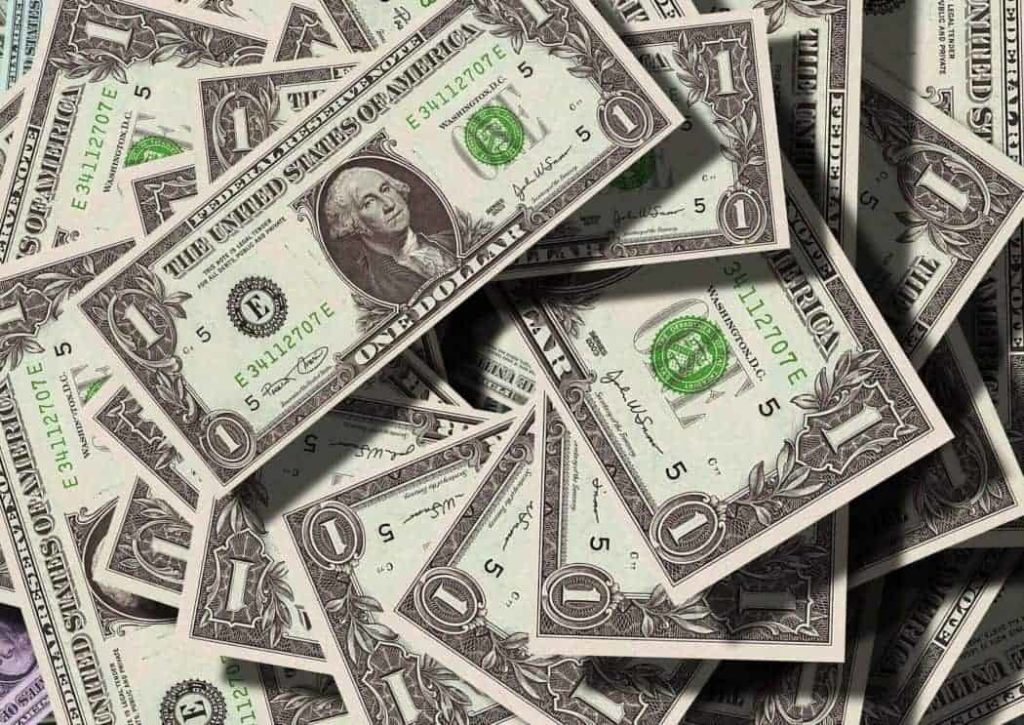Try calling up your auto insurance provider and asking for a loan. You’ll likely get a big chuckle in response. That’s because your car — and home and health — insurers are only in the business of paying on claims. Cash value life insurance, on the other hand, allows you as policyholder to benefit from your premium payments even without an insurance claim.
How Does Cash Value Life Insurance Work?
Cash value life insurance has a death benefit plus an investment feature. You already know what a death benefit is — it’s the face value of the policy and the amount paid out to your beneficiaries when you die. But you may be less familiar with the investment side of things. The investment component is a feature that allows you to build up cash that you can tap into later. Hence, the name “cash value” comes into play.
Not all life insurance policies have cash value. Term life insurance, for example, only offers a death benefit and no cash value. The type of insurance that does offer cash value is called permanent life insurance. Another notable feature of permanent life insurance is that it covers you for life, as long as you keep up with the premiums.
Your premiums fund the cash value
When you pay your premium on a permanent life policy, only part of the payment covers the cost of the insurance. The remainder is directed into your investment account, where it grows on a tax-deferred basis. The type of policy and the insurer dictate your investment choices for those funds. Those choices might include fixed interest rate options or funds tied to stock market indices like the S&P 500. On any given day, your cash value includes both the money you paid in and the associated earnings.
Based on the policy terms, you may be able to borrow against the cash value, withdraw cash, or use the cash value to pay your premiums. Essentially, the money is like an extra savings account, with tax advantages, that you can access in an emergency.
How cash value affects your death benefit
Although your cash value is separate from your death benefit, certain cash value actions may impact what your beneficiaries receive when you die. Consider a policy that has a $15,000 cash value balance and a $250,000 death benefit. If you borrow $10,000 against your cash value, your death benefit is immediately reduced to $240,000. Repay the loan before you die and you restore the full death benefit. But say you choose not to repay it and incur interest charges of $500 as a result. At that point, your death benefit is reduced by the unpaid loan and the unpaid interest charges, which total $10,500.
While an outstanding loan would reduce your death benefit, leaving cash value in the account may not have the opposite effect. Most policies are designed to keep the death benefit level, even the insured dies and leaves a cash balance behind. That means the insurer pays out the stated death benefit and keeps the cash value. Some policies do allow excess cash value to be added to the death benefit. As you might expect, you’d pay a higher premium for that feature.
Types of cash value life insurance
Whole life insurance, universal life insurance, variable universal life insurance, and indexed universal life insurance are all different types of cash value policies. Each has its own nuances with respect to the cash component.
- Whole life insurance policies may pay annual dividends. If you have these dividends deposited to your cash account, you’ll see your cash value grow faster. You could also have those life insurance dividends paid to you directly.
- Universal life insurance may allow you to skip the portion of your premium that’s designated for investment. If you take that option, you pay just enough to keep the policy in force, but your cash value does not increase.
- Variable life policies give you investment options for your cash value, like a brokerage account. Note that these aren’t exchange-traded funds or mutual funds. They are insurance funds, but they’re often tied to known benchmarks. For example, you might be offered a fund that tracks with the Dow Jones Industrial index.
- Indexed universal life insurance gives you access to market-level performance with a lower risk of loss. Your cash value funds are tied to a market index, like the S&P 500. When the underlying index grows, your cash value is credited accordingly, up to a cap set by the insurer. If the index drops, you do not absorb a corresponding loss to your cash value amount. You may also have the option to earn a fixed rate of return on an indexed universal life policy.
Cash Surrender Value of Life Insurance
What is cash surrender value?
Cash value is often confused with cash surrender value, but these are not actually the same thing. Cash surrender value is the amount the insurer will pay out to you if you decide to surrender your policy. Surrendering is the same thing as cancelling — you notify the insurer you don’t want the coverage and the insurer cancels your policy. You are no longer responsible for the premiums and you are no longer covered by the death benefit. The insurer then pays you the cash surrender value, which will usually be less than the cash value on your statement.
How to calculate cash surrender value of life insurance
To calculate the cash surrender value of your life insurance policy, use this formula:
- Cash surrender value = Cash value balance minus the sum of your outstanding loans, outstanding interest charges, and surrender fees
To find your current cash value, check your most recent policy statement. Don’t assume the cash value on your statement already includes loans and outstanding interest; it probably doesn’t. If you don’t see your loan balance and interest charges on your statement, call your insurer for those details.
Surrender fees are specific to your policy, and should be outlined in your policy documentation. You’ll usually see a table that shows different rates on surrender fees based on how long you own the policy. These fees start high when you first execute the policy and go down gradually over time. Hold the policy long enough and the surrender fees drop to zero. That time period could be less than one year or it could be 15 years — different types of life insurance policies have wildly different surrender fee structures.
You may be able to get the surrender fees waived by notifying your insurer well in advance of your intent to cancel. It’s to your advantage to avoid surrender fees whenever possible, as that would maximize your cash surrender value.
Tax Implications of Your Cash Value Life Insurance
Beyond incurring surrender fees, there’s another financial factor to consider before cashing out your life policy. You see, Uncle Sam might want a piece of your cash surrender value also — in the form of income tax.
Remember that your cash value includes the money you’ve paid in plus any earnings on those funds. Since those earnings are tax-deferred, certain events cause the taxes to come due. These include:
- Surrendering your policy and cashing out. You will owe taxes on any earnings paid out to you. You will not owe taxes on the repayment of cash that came from your premiums.
- Withdrawing more than you paid in premiums from an active policy. You will owe taxes on any earnings included in your cash value withdrawals. Avoid this by verifying with your insurer how much you’ve paid in premiums. Then, limit any withdrawals to that amount.
- Taking out a cash value loan and then letting the policy lapse. If you borrow from your cash value, the loan itself is not taxable. But if you don’t repay the loan and then let the policy lapse, you will owe taxes on any amount that’s in excess of your premiums paid.
- Selling your policy. Any earnings built up in the account will be taxable if you sell the policy.
Generally, you can avoid taxes on your life insurance by not touching the earnings included in your cash value. But reach into those earnings — by way of surrendering, withdrawing, or selling the policy — and you will create a taxable event.
About life insurance dividends
You may be receiving dividends annually from a whole life policy. Life insurance dividends are normally considered a return of your policy premiums and are, therefore, not taxable. But any dividends that exceed the amount you paid in premiums would be taxable.
Managing Your Cash Value
Cash value is an attractive component of permanent life policies, because the funds can be borrowed, withdrawn, or cashed out if your financial situation changes. Here are the takeaways for managing your cash value effectively:
- Know the terms of loans and withdrawals
- Verify how much you’ve paid in premiums before borrowing, withdrawing, surrendering, or selling the policy to avoid tax implications
- Check your policy to find out what happens to remaining cash value when you die
Here’s the last thing. Don’t expect anyone to laugh if you ask your life insurer for a loan. The likely response is, “How much do you need?”
Sources
https://www.valuepenguin.com/life-insurance/variable-life-insurance
https://www.investopedia.com/terms/u/universallife.asp
https://www.lifeant.com/faq/what-type-of-life-insurance-pays-dividends/
https://www.lifeinsurancetypes.com/are-life-insurance-dividends-taxed/
https://www.investopedia.com/terms/s/surrendercharge.asp
https://healthhearty.com/how-to-calculate-cash-surrender-value-of-life-insurance
https://www.investopedia.com/terms/c/cashsurrendervalue.asp









